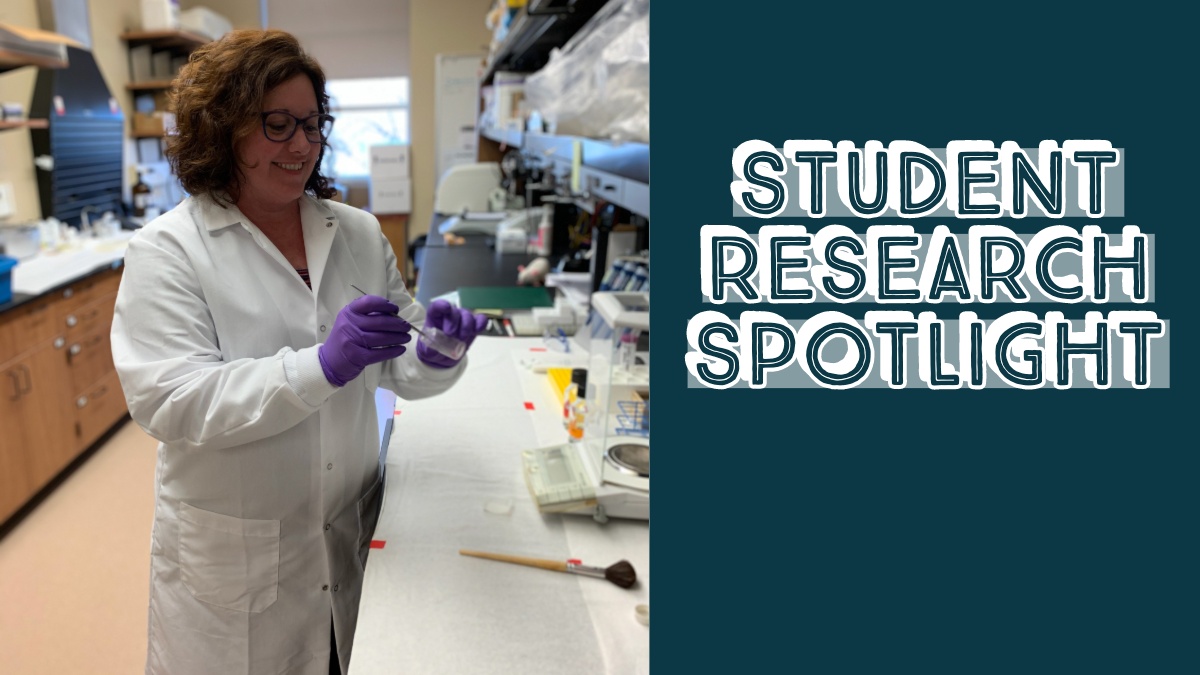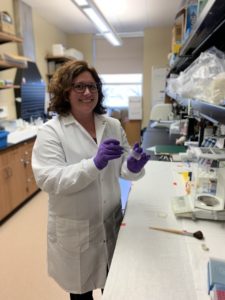Student Research Spotlight: Marie Severson

Marie Severson is a current Graduate Research Assistant at the University of South Dakota (USD). She’s a fellow in the USD Neuroscience, Nanotechnology & Networks Program (N3) in the Division of Basic Biomedical Sciences. She also received her undergraduate degree from USD in Biology.
Severson participates in research that explores the efficacy of a newly
developed nanoparticle, Metal- organic Supercontainers (MOSC), in reducing methamphetamine (METH) neurotoxicity. Developed by the Wang Group at USD’s Chemistry Department, this nanoparticle has the ability to bind excess neurotransmitters that are released when METH is ingested. The excess neurotransmitters cause toxic effects in the brain during a METH overdose. Although this research is very new, the preliminary studies show the MOSC has the potential to attenuate METH toxicity.
organic Supercontainers (MOSC), in reducing methamphetamine (METH) neurotoxicity. Developed by the Wang Group at USD’s Chemistry Department, this nanoparticle has the ability to bind excess neurotransmitters that are released when METH is ingested. The excess neurotransmitters cause toxic effects in the brain during a METH overdose. Although this research is very new, the preliminary studies show the MOSC has the potential to attenuate METH toxicity.
“Research has taught me that although challenging, with hard work and practice I have developed valuable technical skills which has greatly enhanced my learning experience,” said Severson. “Trying new things in the lab and building on these learning experiences within a team setting are some of the things I love about participating in research.”
Aside from the fact that she gets to work in preclinical research, participating in research that may one day be part of a solution to a world-wide health concern has driven Severson to pursue a Science, Technology, Engineering and Mathematics (STEM)-related career.
One developmental program she has taken advantage of is the Science Communication Program run by Rhea Waldman out of the South Dakota Discovery Center in Pierre. The workshops are based on the National Science Foundation-funded Portal to the Public approach that train scientists to connect with the public and other audiences. Severson also recently started an internship with the SD EPSCoR office.
“An internship is part of the USD N3 program, and since I’ve been involved in different programs that partner with SD EPSCoR, I thought an internship with them would be a great fit. The interdisciplinary aspect of the N3 program allows me to gain research experience in neuroscience as well as pursue other areas of interest. I’m excited to explore how I might work with nonprofit STEM organizations in the future.”
When she’s not in the lab or plugging away at her studies, Severson loves traveling, visiting museums, teaching her daughter about nature and bike-riding with her family.
 National Science Foundation RII Track-1 Project:Expanding Research, Education and Innovation in South Dakota
National Science Foundation RII Track-1 Project:Expanding Research, Education and Innovation in South Dakota